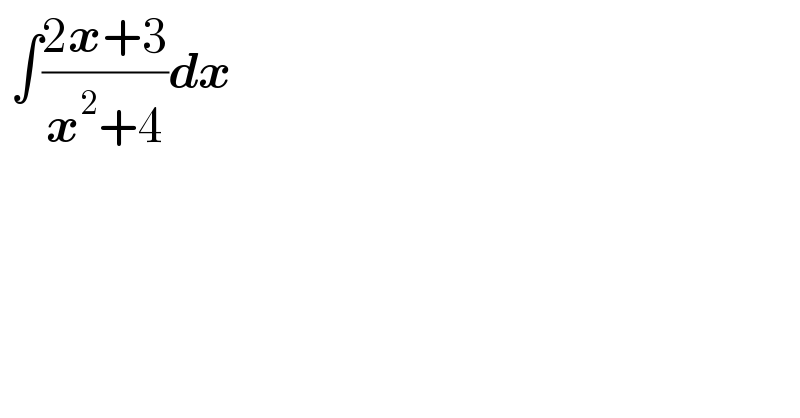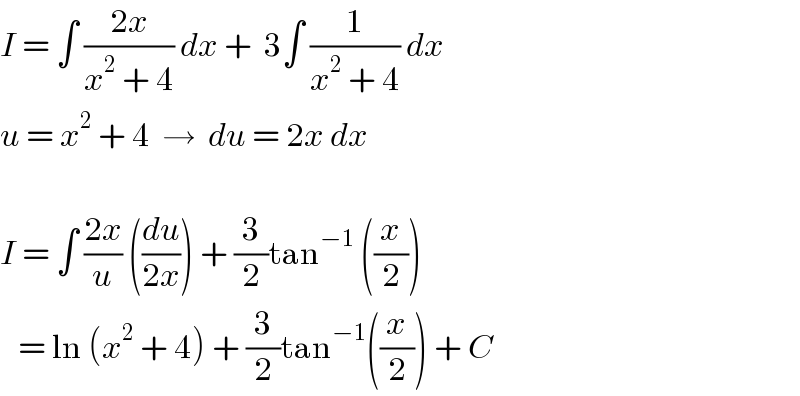
Question Number 33643 by mondodotto@gmail.com last updated on 21/Apr/18

$$\:\int\frac{\mathrm{2}\boldsymbol{{x}}+\mathrm{3}}{\boldsymbol{{x}}^{\mathrm{2}} +\mathrm{4}}\boldsymbol{{dx}} \\ $$
Answered by Joel578 last updated on 21/Apr/18

$${I}\:=\:\int\:\frac{\mathrm{2}{x}}{{x}^{\mathrm{2}} \:+\:\mathrm{4}}\:{dx}\:+\:\:\mathrm{3}\int\:\frac{\mathrm{1}}{{x}^{\mathrm{2}} \:+\:\mathrm{4}}\:{dx} \\ $$$${u}\:=\:{x}^{\mathrm{2}} \:+\:\mathrm{4}\:\:\rightarrow\:\:{du}\:=\:\mathrm{2}{x}\:{dx} \\ $$$$ \\ $$$${I}\:=\:\int\:\frac{\mathrm{2}{x}}{{u}}\:\left(\frac{{du}}{\mathrm{2}{x}}\right)\:+\:\frac{\mathrm{3}}{\mathrm{2}}\mathrm{tan}^{−\mathrm{1}} \:\left(\frac{{x}}{\mathrm{2}}\right) \\ $$$$\:\:\:=\:\mathrm{ln}\:\left({x}^{\mathrm{2}} \:+\:\mathrm{4}\right)\:+\:\frac{\mathrm{3}}{\mathrm{2}}\mathrm{tan}^{−\mathrm{1}} \left(\frac{{x}}{\mathrm{2}}\right)\:+\:{C} \\ $$
